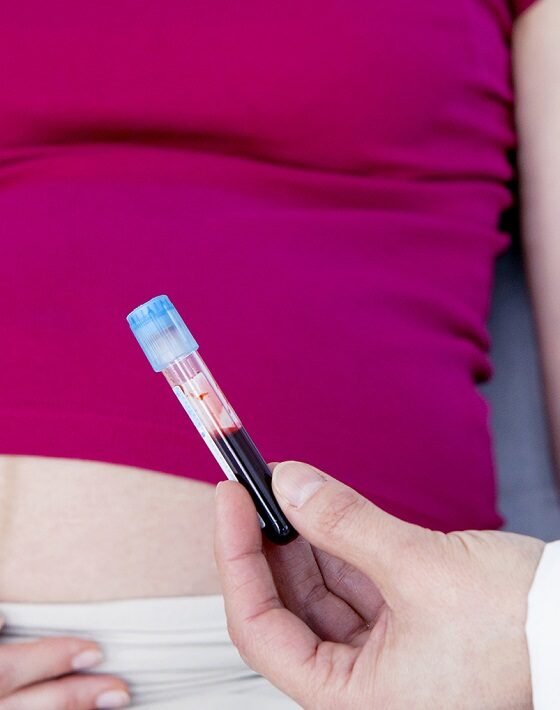
Third Trimester of Pregnancy: Key Points
Third Trimester of Pregnancy: Key Points

What should you keep in mind in the third trimester?
You’re in the heart of the third trimester, where butterflies dance in your belly alongside your growing baby, nerves tingle with the excitement of what’s to come, and the thrill of meeting your little one is almost palpable. It’s a time filled with anticipation, preparation, and dreams about the tiny fingers and toes you’ll soon be counting. As you lovingly (and maybe anxiously) await the big day, let’s gently walk through the key things to remember during this precious home stretch.
Doctor Dates: Your New Norm
- BFF or Doc? Get ready to see your doctor more than your best friend. These visits are vital for checking that your baby is getting into position, head down, and prepared to meet the world. Plus, they’ll watch your health markers to ensure you’re both gearing up for a smooth arrival.
Crafting Your Birth Experience
- Choosing Your Spot: Whether it’s the familiarity of your home, the supportive environment of a birthing center, or the safety of a hospital, think about where you want to meet your baby for the first time.
- Who’s Your Squad? Decide who you want by your side. And when it comes to labor, whether it’s breathing techniques, an epidural, or something else that helps, plan it out, but stay flexible. Babies have their timing and ways of surprising us! Baby’s Movements: The Daily Dance
- Feel the Groove: Keep track of those precious kicks and wiggles. A slowdown in activity is your cue to check in with your doctor to be safe.
Pre-Labor Prep
- Know the Signs: Familiarize yourself with early labor signs like regular contractions or water breaking. It helps to know what to expect but be ready for some curveballs.
Eat Well, Stay Hydrated
- Fueling for Two: Continue with those healthy snacks and plenty of water. It’s all about keeping you and your baby nourished and hydrated.
Stay Moving
- Gentle Moves: With your doctor’s thumbs-up, keep active. Prenatal yoga or daily walks can boost mood and prepare your body for birth.
Rest Up
- Relaxation Time: Listen to your body. If you’re tired, rest. It’s all about finding what makes you feel good, whether napping or binge-watching your favorite series.
Baby Gear: Nesting 101
- Get Set: Haven’t set up the nursery or packed that hospital bag yet? Now’s the time. Organize those baby clothes, install the car seat, and stock up on diapers. It’s all about making your nest as cozy and ready as possible.
Learn the Ropes
- Classes and More: Consider childbirth and parenting classes. They’re like crash courses in baby care – super helpful for first-timers.
Early Arrival?
- Watch for Signs: Know the early signs of labor, especially if your little one decides to come before 37 weeks. Spot something off? Call your doctor, stat.
Emotional Rollercoaster
- It’s Okay to Feel: Pregnancy can be an emotional ride. Are you feeling all over the place? Reach out. Talking helps and taking care of your mental health is essential.
After the Arrival
- Post-Birth Chat: Talk to your doctor about what to expect post-delivery. From healing to breastfeeding, get the lowdown on adjusting to motherhood.
Keeping an Eye on the Scale
- Weight Watch: It’s normal to gain weight, keep an eye on it. Your doctor can help you stay on a healthy track.
Just a gentle reminder: Every question or concern about your and your baby’s health, no matter how small, is super important. Don’t hesitate to share every little wonder or worry that comes into your head.
Stay in close contact with your doctor, rely on that incredible mom intuition you have, and get ready for an amazing adventure.
When to Seek a Medical Help?
Heading into the final lap of your baby bump journey, keep your doctor or midwife’s number handy when you see these signs:
- Intense Pain: If you feel severe pain in your abdomen, back, or pelvis, it’s essential to seek medical attention immediately.
- Vaginal Bleeding: Any amount of vaginal bleeding at this stage is a concern and needs immediate attention.
- Reduced Baby Movement: If the baby moves less or stops moving, and you notice fewer than 10 movements in two hours, it’s time to contact your healthcare provider.
- Signs of Labor: Be alert for signs of labor, which include regular or frequent contractions, a constant low backache, cramping, a sudden release of watery fluid from your vagina, or a feeling of pressure in your pelvis.
- Visual Disturbances: If your vision goes blurry or you start seeing spots, don’t wait to seek advice, as this might be a sign of high blood pressure or preeclampsia.
- Headaches or Nausea/Vomiting: Ongoing headaches, nausea, or vomiting need medical attention, as these can also be symptoms of high blood pressure or preeclampsia.
- Swelling: Swelling in your hands, feet, or face can be a sign of preeclampsia and should not be ignored.
- Fever: A fever above 100.4°F could indicate an infection, which can be dangerous for you and your baby.
- Breathing Difficulties or Chest Pain: If you have difficulty breathing or experience chest pain, get evaluated immediately, as this might indicate a heart or lung issue.
Note: What is preeclampsia?
Preeclampsia is a bit like a sneaky bump in the road that can appear during the second half of your pregnancy journey. It’s all about high blood pressure and sometimes too much protein in your pee, which can be a big deal for both you and your little one if it’s not kept in check.
Here’s the lowdown on what to watch for:
- Your blood pressure might go up more than usual.
- You might find protein in your urine when your doctor checks it.
- Headaches that just won’t quit.
- Vision is getting wonky, like seeing spots or getting super sensitive to light.
- Pain right up under your ribs, especially on the right side.
- Feeling suddenly sick to your stomach or throwing up when you’re way past morning sickness.
- Not peeing as much.
- Feeling like your breath is short as if you can’t catch your breath.
Catching this early means you and your doctor can closely monitor things. Sometimes, it’s about taking medicine to lower your blood pressure or getting steroids to help your baby’s lungs get ready a bit faster if they’ll need to come out sooner than planned. If things get serious, the safest bet might be to welcome your baby a bit earlier than expected to keep you both safe.
After your bundle of joy arrives, preeclampsia usually packs its bags and leaves, but it’s a good heads-up to watch your heart health down the road.






